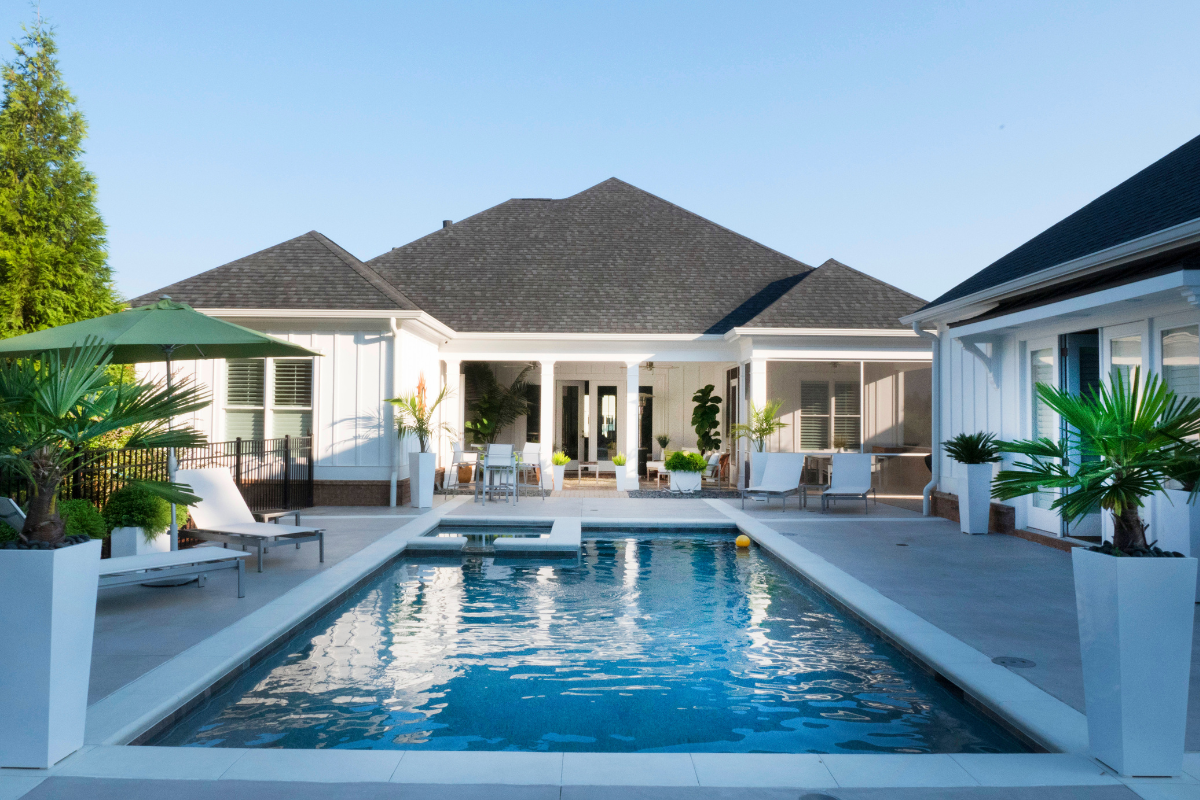When deciding on whether a pool should be on your house hunting wish list, balance these two factors:
- Any increase in the value of the house will be less than what it costs you to install, maintain, and insure a pool. That is true everywhere in the country.
- How much will you use and enjoy that pool?
Costs
The cost of having a pool varies depending on:
- The part of the country you live in.
- Installation costs – These vary depending on the type of pool or the size of the pool. Additionally, you can incur greater costs if earth-moving equipment can’t get into your yard, or they hit a rock, or your lot is not level and you need more landscaping to make it work.
- Local law and liability – Some towns require special fencing to protect children from pools. Insurance costs are higher if you have a pool.
- Repair costs – There is filtering equipment to maintain and replace. Periodically, the pool will leak. Finding the leak and repairing it can become costly.
- Ongoing costs – When the pool is open, there is labor and cost to keep the water clean and safe. The pool needs to be skimmed and vacuumed. The water needs to be tested and balanced, which requires buying the testing materials and the pool chemicals. Forbes Magazine estimated $180 a month, during the season.
Forbes Magazine outlined typical costs of installing and maintaining a pool.
Usage
Balancing how much time you will spend using a pool with what it costs to have that pool is the crux of this decision. How many months will you use it? Who in your family will enjoy it regularly during the hot months?
Sale and Resale Value
In the South, there are more months to enjoy a pool than in the temperate North. That affects how common pools are in a region. However, all real estate value is local. If a majority of houses in a subdivision or a price range have pools, it reduces the value of houses without one.
Paula Howard, EBA in Central Florida/Orlando/New Smyrna Beach and surrounding 5 counties explains it this way:
“An existing inground, preferably screen enclosed pool adds value to the residential home for sale. The value depends on the price range and if pools are the “norm” in the particular subdivision. Also, it is much cheaper to buy a home here with an existing pool than buying one with enough room to add one. Adding a new pool is at least double the cost of the value an appraiser gives an existing pool.
An above ground pool adds some value but very little. It’s not a permanent structure and often a negative to many of my buyer clients. Some consider it an eyesore.
I find appraisers give the “value” of an existing pool based on the price range of the home. A pool’s value is anywhere from $12,000, upwards. But again, that is not even close to the cost of installing a brand new one. Even a home for sale where the seller’s pool is new or newer, still won’t get an appraisal value close to what it cost that seller to have it built.”
Jon Boyd, EBA in Ann Arbor, Michigan describes pools in his area:
“In the Ann Arbor market, the answer really depends on the price range of the home.
In the luxury market (-$1M+) an in-ground pool is a net positive.
In the move-up market ($500-$1M) an in-ground is typically net zero.
In a first-time buyer price range, it is typically a negative.
Above ground pools aren’t a big deal either way because a homeowner can often get someone to remove it without much expense.”
Conclusion
If you and your family are moving to a home in the middle or upper end of your local market, and want a pool, you will do economically better by purchasing a home with a pool already installed. Take note of whether pools are common in the local market around the home you want to purchase. Check with your insurance agent about the cost of insurance and whether there will be additional costs to beef-up the fencing around a pool.
Prepare for the cost of running your pool and enjoy it!

